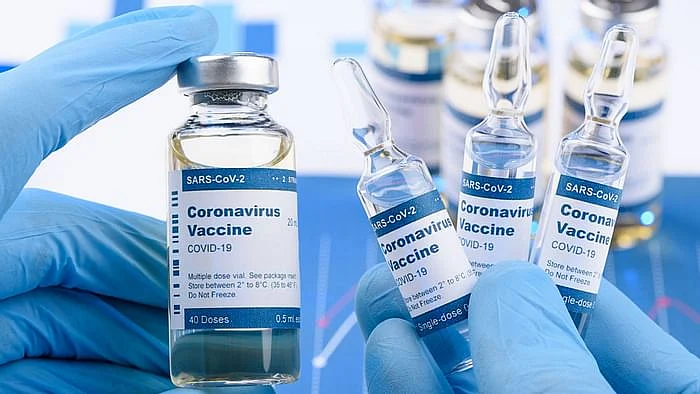India’s Indigenous mRNA COVID Vaccine Gets Nod For Human Trials
This is India’s first mRNA vaccine. Globally, US-based pharma giant Pfizer Inc. has developed its mRNA vaccine.

advertisement
India’s first indigenous mRNA vaccine candidate, developed by Pune-based Gennova Biopharmaceuticals, has received approval on Friday, 11 December from Indian regulators to initiate Phase I/II human clinical trials, according to a statement put out by the Ministry of Science and Technology.
This will also be the first mRNA-based COVID-19 trial in India and is expected to be completed by March.
The Department of Biotechnology had earlier said it has provided seed funding for the development of Gennova's novel self-amplifying mRNA-based vaccine candidate for COVID-19, reported IANS.
The permission was granted after the Subject expert Committee (SEC) for vaccines recommended for grant of permission in a review meeting on Wednesday, a document carrying the recommendations and accessed by IANS showed.
"After detailed deliberation, the committee recommended for grant of permission to conduct Phase 1/2 clinical trial subject to the condition that the interim results of Phase 1 study shall be submitted to the committee before proceeding to the next phase," the document read, quoted IANS.
Vaccine Developed by Gennova
Gennova has developed its mRNA vaccine candidate (HGCO19) in collaboration with HDT Biotech Corporation, US. The firm had earlier said that the vaccine demonstrated safety, and immunogenicity i rodent and non-human primate models, reported IANS.
Namita Thappar, ED, Emcure, tweeted on Thursday that Gennova had got conditional approval for human clinical trials of its vaccine. They will be administering the first human injection after all regulatory clearance, reported Financial Express.
“HGCO19 is stable at 2-8°C for two months. Gennova has completed all preliminary work and should be initiating the Phase I/II human clinical trial soon since the approval from the DCGI office has been received,” said a statement by The Ministry Of Science and Technology.
“The mRNA vaccine is considered safe as it is non-infectious, non-integrating in nature, and degraded by standard cellular mechanisms. They are expected to be highly efficacious because of their inherent capability of being translatable into the protein structure inside the cell cytoplasm. Additionally, mRNA vaccines are fully synthetic and do not require a host for growth, e.g., eggs or bacteria. Therefore, they can be quickly manufactured in an inexpensive manner under cGMP conditions to ensure their ‘availability’ and ‘accessibility’ for mass vaccination on a sustainable basis,” said the statement by the Ministry of Science and Technology.
Eight Vaccines at Different Stage of Trials: Health Ministry
The Union Health Ministry on Tuesday had announced that as many as eight vaccine candidates for COVID-19 are under different stages of clinical trials and could be ready for authorisation within the next four weeks.
The eight vaccines include Astrazeneca and Oxford University-developed and Serum Institute of India-manufactured Covishield, Covaxin by Bharat Biotech Ltd, ZyCoV-D by Zydus Cadila, Russian vaccine candidate Sputnik-V, NVX-CoV2373 by SII, HGCO19 by Geneva, and two unlabeled vaccines – the Recombinant Protein Antigen-based vaccine by Biological E Ltd and Inactivated rabies vector platform by Bharat Biotech, reported IANS.
Gennova was one of the three firms that Prime Minister Narendra Modi interacted with for an update on the development of their vaccines, reported Financial Express.
Meanwhile, two vaccines candidates – Covishield and Covaxin – are in the third stage of clinical trials. They have applied for emergency use authorisation to the Drug Controller General of India (DCGI). Their application is pending for approval after the SEC found inadequate safety and efficacy data of the vaccines in its Wednesday review meeting, reported IANS.
(With inputs from IANS and Financial Express)